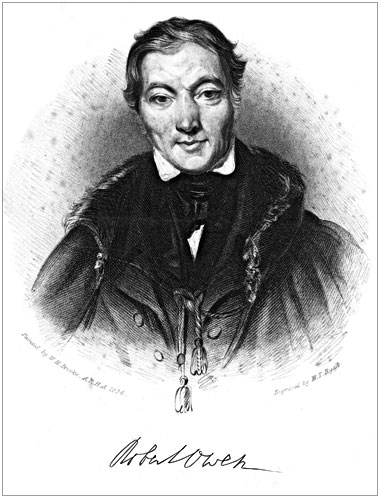Robert Owen: The Delicious Dream of the Future
Introduction

Almost without exception the major reform movements of today can trace their roots to an eccentric radical factory owner and social activist, Robert Owen (1771-1858). In 1799 he purchased a cotton mill at New Lanark, Scotland, and turned it into a social experiment. He enlarged worker housing, undertook sanitary improvements, began a social insurance scheme, opened a cooperative store, and founded a school for the instruction of workers' children. In subsequent years he ceded ownership of the mill (when partners failed to endorse his more radical educational plans) and sought to disseminate his ideas to the world at large. In the years between the end of the Napoleonic wars in 1815 and the Revolutions of 1848 Owen developed plans to create self-sustaining communities to alleviate poverty in the British Isles, and purchased a town in Indiana where he could construct a model community. Owen's was a millennial dream of cooperation and abundance, achievable through education and the creation of a new environment for human development. As Owen proclaimed from the title page of his journal, The Millennial Gazette: "The character of man is formed for him, and not by him!" This declamatory phrase (with italicized prepositions) had the power of revealed religious certainty; he believed wholeheartedly in the power of environment to shape - or reshape - human nature. All his life he wrestled with the many social, political, and economic implications of this credo, his faith so deeply rooted that despite the fact that so many of his projects ended in failure, he remained an optimist. Indeed, with the exception of the mill village of New Lanark outside of Glasgow, Scotland, the visible results of Owen's life and career lie quite thin on the ground; in the exhibition at Vassar College you can find the yellowed, flaking, pages of some of the many hundreds of books, pamphlets, and papers he wrote. But he spawned, as one of his followers noted, a delicious dream of the future. Far better, he wrote, "to revel in a delicious dream of the future than to be oppressed by the nightmare of the present." Who then was Robert Owen? And why, perhaps, does he matter now?
The best collection of Owen's writings is edited by Gregory Claeys, A New View of Society and Other Writings (Harmondsworth: Penguin, 1991)